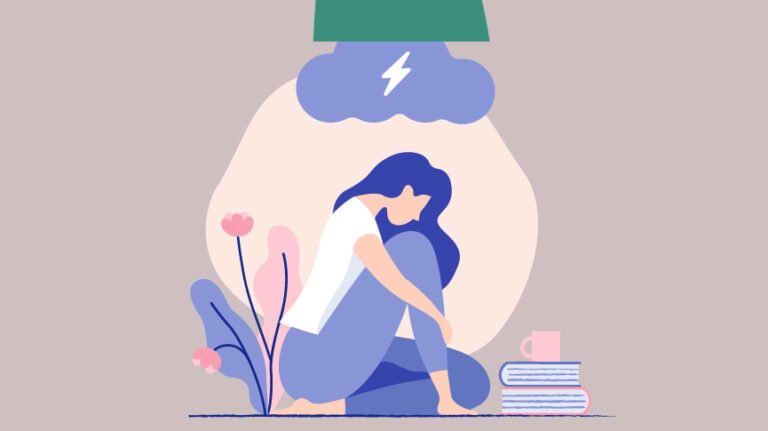Polycystic ovary syndrome is the most common endocrine disorder and is a chronic hormonal condition caused by an imbalance of reproductive hormones andHere are several factors why women with PCOS may feel depressed.
Insulin resistance
At the clinical level, insulin resistance could be a reason. About 70% of women with PCOS are insulin resistant. Elevated blood sugar and insulin resistance are linked to depression, however, scientists aren’t entirely sure why.
A 2021 Stanford Medicine study found that people with insulin resistance had twice the risk of developing depression. A 2023 study published in Biochemistry and Biophysics The report also found a link, with insulin resistance promoting neuroinflammation.
Insulin resistance occurs when muscle, fat, and liver cells no longer respond to insulin, which causes blood sugar levels to rise. The pancreas must produce more insulin to move the glucose. The body is unable to keep up and produce enough insulin, so the excess sugar is stored as fat.
Inflammation and stress
PCOS can often cause inflammation in the body such as the high cortisol associated with increased stress and depression. High cortisol and insulin resistance can promote both weight gainwhich in turn can lead to appearance anxiety.
People with PCOS have increased androgen levels which could potentially contribute to mood swings. If androgens remain elevated for a long time, symptoms such as acne and excessive body hair may occur. This could be another factor that can contribute to anxiety and depression.
Infertility
Many women with PCOS are depressed inability to have children. Infertility treatment can also worsen depression, as it is financially burdensome and can also be unsuccessful. Stress on the body can physically exhaust a woman when trying to conceive.
In addition, PCOS can increase pregnancy complications and can lead to:
- Gestational diabetes
- High blood pressure
- Pre-eclampsia
- Premature birth
- Cesarean delivery due to high blood pressure and obesity
Recovering from or dealing with these types of complications can cause one to experience greater amounts of stress or depressive symptoms as well.
PCOS and other health conditions
In addition to depression, research has found that PCOS is also associated with obsessive compulsive disorder (OCD)bipolar disorder, autism spectrum disorder, eating disorders and sleep disorders.
Other health conditions associated with PCOS include diabetes, high blood pressure, cardiovascular disease, endometrial hyperplasia, and endometrial cancer.
If you think you have PCOS or if your doctor is concerned, the exam will include a pelvic exam, a physical exam, a blood test, or an ultrasound to help make a diagnosis.
Treatment for PCOS and depression
To get depression under control, it is also important to treat PCOS. While there is currently no cure for PCOS, patients can manage their condition.
Contraception and Nutrition
Treatment for PCOS includes; contraceptive pills for hormonal imbalances or eating a more nutritious diet for insulin resistance. Although there isn’t a lot of scientific research linking mood and diet for people with PCOS, some studies have found that the Mediterranean dietconsisting of fish, vegetables and legumes protects people from symptoms of depression. In a 2023 study in Scientific Reports, women with PCOS who exercised had lower symptoms of depression than women with and without PCOS.
Treatment
In addition to lifestyle changes, treatment for both PCOS and depression may include talk therapy to discuss the changes you’re feeling from the condition and how you’re coping.
Medicine
Antidepressants for depression are common, however, some antidepressants can cause weight gain and could lead to more detrimental health effects. Sertraline, an SSRI, is commonly prescribed to women with PCOS, however, more research needs to be done on how the medication can address the side effects of the condition.
Other medications include metforminwhich is usually used for treatment type 2 diabetes but it can regulate and lower insulin and blood sugar levels. It has also been found to improve ovulation and regulate periods.
Supplements
If you’re looking for more holistic measures, taking omega-3s such as a fish oil supplement has been associated with improved mood. Acupuncture is well known increase blood flow and reduce the number of ovarian cysts in PCOS patients. It can also be a stress reliever.
Overall, finding support if you have PCOS is vital. Whether it’s mental or physical support, the condition can wreak havoc on your body and mind. If you are experiencing moderate or severe PCOS symptoms, see your healthcare provider for more information on how to proceed and find the care you need.
